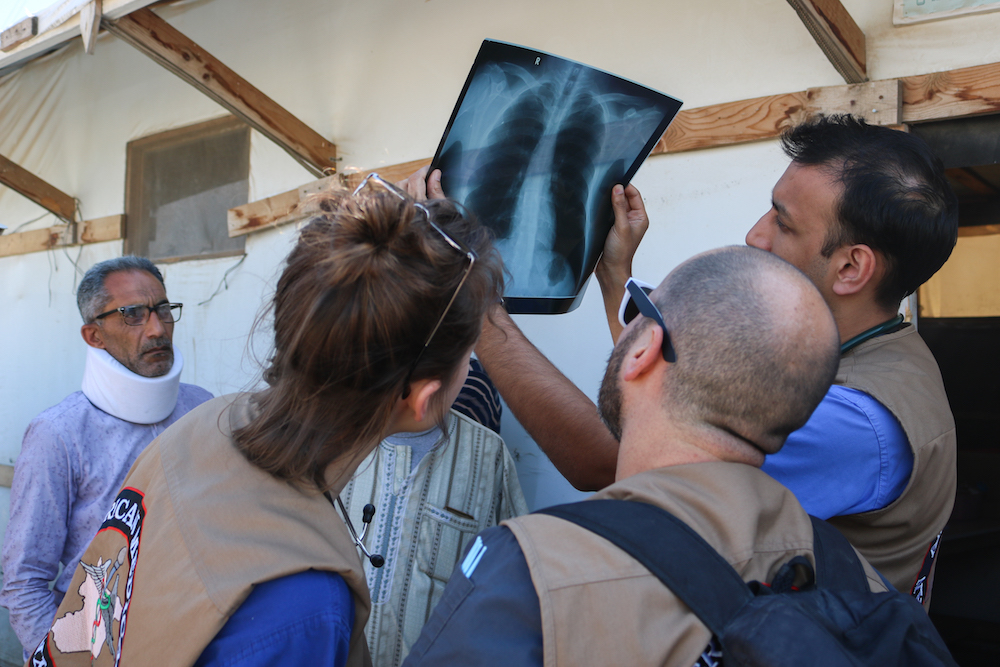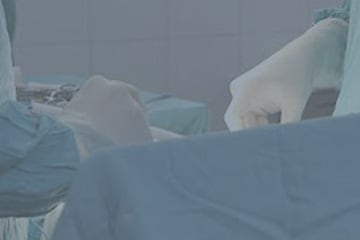May 21, 2018
Using her crutches, Tamam moves quietly and measures her steps to reach SAMS makeshift clinics inside a settlement in the Bekaa Valley, where SAMS medical mission volunteers are providing treatment and medications for some of the many Syrian refugees residing in the area.
Tamam, 63, fled to Lebanon six years ago, and settled in a tent in a camp in Saadnayel with her daughter. Tamam has lost many members of her family to the Syrian conflict; some were killed, while some were detained, and many left the country.
“Before, I fought for my family. Now, I cannot fight anymore” she said.
While she was living in Syria, Tamam was diagnosed with diabetes. She was able to access medication, but stress, depression, and anxiety caused her situation to deteriorate. After she arrived in Lebanon, she adopted a new treatment plan. She started taking insulin, however, she noted that insulin had serious side effects, “I cannot move now, and I have serious issues with my eyes,” she said.
In Lebanon, many refugees cannot meet their medical needs and access treatment. 10% of Syrian refugees in Lebanon have diabetes, and require care for this chronic disease. Additionally, 83% of Syrian households in Lebanon report at least one family member who suffers from a chronic illness, including diabetes. 200 patients suffering from kidney disease in Lebanon now face losing their access to lifesaving dialysis care completely.
Although Tamam can receive insulin from non-profit organizations serving diabetes patients, she has had substantial difficulty treating her eyes.
“My high blood sugar leads to a partial vision impairment. I need consistent eye exams, and medication but the estimated cost for treatment is around $200 per month.”
With these added pressures, Tamam fell deeper into debt.
Many refugees receive assistance from the UNHCR for payment of health services, however, they still need to cover the remaining 25 percent of services, as well as insulin and laboratory fees. Accessing health services for refugees should not only be limited to providing basic primary services. Advanced, adequate and consistent medical services for refugees can and must be implemented with the following mechanisms:
- A constant medical monitoring plan for patients. Patients can experience complications if they cannot regulate their blood sugar levels.
- A health education program for refugees to increase awareness, and provide education on the habits that can increase the risk of disease.
- Financial coverage for laboratory tests.
Lindsey Smith, NP, who recently led SAMS on a medical mission to Lebanon, observed that many refugees are not given sufficient follow-up after a visit to a doctor to address their condition.
“There can be many miscommunications between services providers and patients. From our conversations with patients, we can see that their doctors visits are only limited to a few questions and providing medication.”
Lindsey’s observations affirm that for refugees like Tamam, consistent care is key. With refugees living in host countries for several years, chronic conditions such as diabetes and kidney failure must be addressed.
“Refugees are not only looking for treatment, they are also searching for care,” she said.




